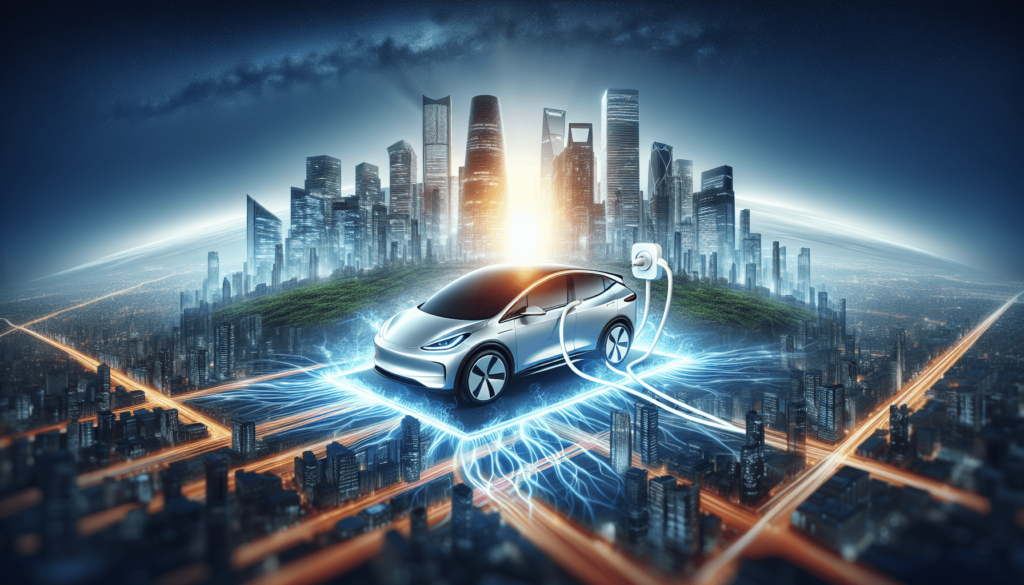Welcome to a fascinating dive into the world of electric vehicles and their advancements in energy efficiency. In this article, we will explore the exciting progress being made in electric vehicle technology and the significant gains in energy efficiency that come along with it. From improved battery technology to smarter energy management systems, there are many exciting developments that are contributing to making electric vehicles more efficient and sustainable than ever before. Get ready to be amazed by the positive impact that these advancements are having on the environment and our daily lives. What Are The Energy Efficiency Gains From Electric Vehicle Technology Advancements?
What are the energy efficiency gains from electric vehicle technology advancements? If you’re curious about how electric vehicles are evolving to be more efficient and eco-friendly, you’ve come to the right place! In this article, we will explore the latest advancements in electric vehicle technology and the energy efficiency gains that come along with them. So, buckle up and let’s dive into the world of electric vehicles!
Advancements in Battery Technology
Let’s start by looking at one of the most significant advancements in electric vehicle technology: battery technology. The evolution of batteries has played a crucial role in improving the energy efficiency of electric vehicles. Newer battery technologies offer higher energy density, faster charging times, and longer lifespans, making electric vehicles more practical and appealing to consumers.
Lithium-Ion Batteries
Lithium-ion batteries have become the go-to choice for electric vehicle manufacturers due to their high energy density and lightweight properties. These batteries can store more energy in a smaller space, allowing electric vehicles to travel longer distances on a single charge. Additionally, advancements in lithium-ion battery technology have led to reduced charging times and improved overall performance of electric vehicles.
Solid-State Batteries
Solid-state batteries are the next frontier in electric vehicle technology. These batteries use solid electrolytes instead of liquid electrolytes, making them safer, more energy-dense, and longer-lasting than traditional lithium-ion batteries. Solid-state batteries have the potential to revolutionize the electric vehicle industry by offering faster charging times, increased range, and improved overall efficiency.

Regenerative Braking Systems
Another significant advancement in electric vehicle technology is the implementation of regenerative braking systems. Regenerative braking allows electric vehicles to recover energy when braking or coasting, converting kinetic energy into electrical energy that can be stored in the battery. This technology not only improves the energy efficiency of electric vehicles but also extends their range and reduces wear on traditional braking systems.
How Regenerative Braking Works
When you apply the brakes in an electric vehicle equipped with regenerative braking, the electric motor acts as a generator, converting the vehicle’s kinetic energy into electrical energy. This energy is then stored in the battery for later use, such as accelerating or powering auxiliary systems. By harnessing this otherwise wasted energy, regenerative braking systems help improve the overall efficiency of electric vehicles.
Benefits of Regenerative Braking
Regenerative braking offers several benefits to electric vehicle owners, including increased range, reduced energy consumption, and lower maintenance costs. By capturing energy that would otherwise be lost during braking, regenerative braking systems help maximize the efficiency of electric vehicles and enhance the driving experience for consumers.

Advanced Powertrain Technologies
Electric vehicles are also benefiting from advancements in powertrain technologies that improve their energy efficiency and performance. New electric motors, inverters, and control systems are being developed to optimize power delivery, reduce energy losses, and enhance the overall driving experience for electric vehicle owners.
Permanent Magnet Motors
Permanent magnet motors are increasingly being used in electric vehicles due to their high efficiency, compact size, and precise control capabilities. These motors produce less heat and operate more efficiently than traditional induction motors, helping to improve the energy efficiency of electric vehicles and extend their range on a single charge.
Silicon Carbide Power Electronics
Silicon carbide power electronics are another key advancement in electric vehicle technology. These components are more efficient and durable than traditional silicon-based electronics, allowing for higher power densities, faster switching speeds, and reduced energy losses. By incorporating silicon carbide power electronics into electric vehicles, manufacturers can enhance their energy efficiency and performance.

Vehicle-to-Grid Integration
One of the most exciting developments in electric vehicle technology is vehicle-to-grid (V2G) integration. V2G technology allows electric vehicles to connect to the grid and discharge stored energy back into the electrical system, providing a valuable resource for balancing supply and demand. This bidirectional energy flow not only benefits the grid but also enables electric vehicle owners to monetize their vehicles’ stored energy.
Grid Services
By participating in V2G programs, electric vehicle owners can earn money by selling excess energy back to the grid during peak demand periods. This additional revenue stream can help offset the cost of owning and operating an electric vehicle, making them more financially attractive to consumers. Additionally, V2G integration can help stabilize the grid, improve energy efficiency, and promote renewable energy integration.
Demand Response
V2G technology also enables electric vehicles to participate in demand response programs, adjusting their charging and discharging schedules based on grid conditions and energy prices. By optimizing energy usage in real-time, electric vehicles can help reduce peak demand, mitigate grid congestion, and support a more efficient and sustainable energy system. This flexibility benefits both electric vehicle owners and the grid operators, creating a win-win scenario for all stakeholders.

Conclusion
In conclusion, the energy efficiency gains from electric vehicle technology advancements are substantial and far-reaching. From improvements in battery technology and regenerative braking systems to advancements in powertrain technologies and V2G integration, electric vehicles are becoming more efficient, practical, and eco-friendly than ever before. By embracing these advancements and supporting the ongoing development of electric vehicle technology, we can accelerate the transition to a cleaner, more sustainable transportation system for the benefit of all.
So, the next time you’re considering purchasing a new vehicle, why not explore the world of electric vehicles and experience the energy efficiency gains firsthand? With the latest advancements in electric vehicle technology, the future looks bright for electric vehicles and the environment. Happy driving!


